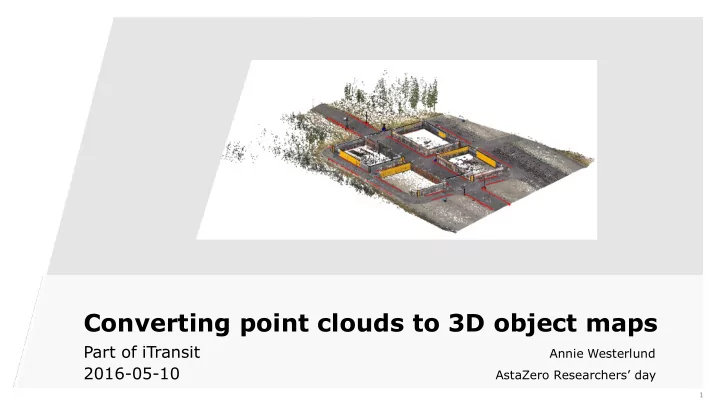

Converting point clouds to 3D object maps Part of iTransit Annie Westerlund 2016-05-10 AstaZero Researchers’ day 1
Agenda • Short background • Overview of algorithm • Description: Point cloud to 3D object map • Final words 2
Background 3
Background Why should we process point clouds? • ~ 80 000 000 points. • ~2 GB • Real-time navigation and positioning => need efficient solution. 4
Overview of algorithm 5
Overview of main algorithm Road refiner XYZRGBI point Statistical cloud classification Input Lane marking detector Cylinder Wall detector detector Object map 6
Description: Point cloud to 3D object map 7
Statistical classification • Divide point cloud into XY grid. • Fit plane to points in grid. • Statistical classification: Variance XY plane • Variance Patch plane • Color • 8
Object detection • Wall detection: Detect possible ” building clusters”. • Find vertical planes in clusters. • Find smallest enclosing cube. • • Cylinder detection: Detect poles. • Find cylinder parameters. • • Lane marking detection: Detect lane markings • Describe lane marking form one or more by cubes. • 9
The object Map • Objects descibed in global coordinates. • Objects are stored in binary files. • The map can be visualized in different layers. 9 kB without road surface • 442 kB with road surface • Compare 2 GB point cloud • 10
AstaZero city and part of rural road 11
Describing details • 3D grid • Oriented bounding boxes • Extract main objects first, then describe details 12
Final words 13
Final words • Accuracy and resolution • Positioning – LiDAR and camera map matching • Potential for expansion 14
Thanks for the attention! 15
Recommend
More recommend